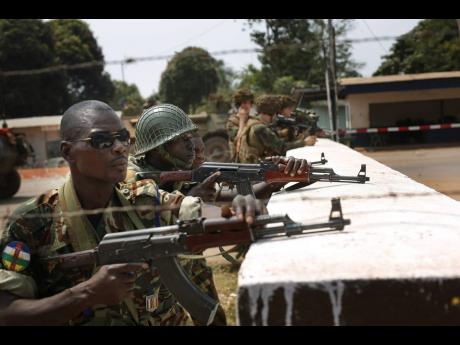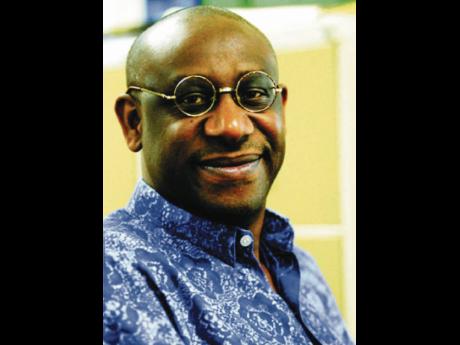Adekeye Adebajo | Africa’s peacekeeping paradox
While recently addressing the United Nations (UN) General Assembly in New York, the president of the Democratic Republic of the Congo (DRC), Félix Tshisekedi, demanded that the world body begin withdrawing its 18,000 troops from his country by December. This follows the ongoing expulsion of 13,000 UN peacekeepers from Mali by the military regime of Colonel Assimi Goïta, to be concluded by January 2024.
In addition, the African Union (AU) continues the withdrawal of its 15,000 peacekeepers from Somalia due to the reluctance of Western governments to continue funding the mission. These untimely departures will create further instability across large swathes of Africa’s Sahel, the Great Lakes, and the Horn of Africa. In the near future, peacekeepers will again be required to provide security in order to facilitate the negotiation of durable peace accords and help ensure their successful implementation.
Peacekeeping in Africa – where 84 per cent of UN peacekeepers are deployed – is facing a serious crisis due to an enduring paradox: African peacekeepers who are more willing to enforce peace are not provided the logistical and financial resources to do so while better-equipped UN peacekeepers often refuse to undertake dangerous enforcement missions to protect populations at risk.
Four key reasons explain this situation. First, after the death of the popular Congolese prime minister, Patrice Lumumba, under the noses of a Western-dominated UN peacekeeping mission in 1961, many African governments opposed the deployment of its peacekeepers on their soil. Governments in Egypt, Burundi, Eritrea, Chad, and Sudan also expelled UN peacekeepers. It is, however, important not to throw the baby out with the bath water, as the world body has helped to restore peace and democratic rule to Namibia, Mozambique, and Sierra Leone. Second, Africa remains replete with weak states that have often relapsed into conflict as a result of poor governance, lack of socio-economic development, and a failure by external actors to implement effective peacebuilding strategies by strengthening state institutions in sustainable ways.
The third explanation lies in the continuing weakness of fledgling African regional organisations like the AU, the Economic Community of West African States (ECOWAS), the Southern African Development Community (SADC), and the East African Community (EAC), which have all made enormous sacrifices for the cause of peace. ECOWAS lost over 1,500 soldiers in Liberia and Sierra Leone, while the mostly East African force in Somalia has lost over 3,500 peacekeepers. Related to these limitations is the internal fragility of regional powers like Nigeria and South Africa, which had led past regional missions into Liberia, Sierra Leone, Burundi, and Darfur. Finally, the deployment of troops by external actors like France, the United States (US), and Russian-backed Wagner mercenaries to Djibouti, Chad, Niger, Senegal, Mali, and Central African Republic (CAR) have often represented more self-interested meddling than efforts to strengthen Africa’s security architecture.
REFUSE TO DEPLOY
The largest UN troop-contributing countries like India, Pakistan, Bangladesh, and Nepal – like Western armies – also tend to refuse to deploy their troops to dangerous peace-enforcement missions. This has damaged the credibility of UN peacekeepers not just in Mali and the DRC, but also in South Sudan and CAR, where Blue Helmets are widely perceived by local populations to be observing the slaughter and displacement of millions rather than halting it. The fact that 80% of the $1 billion annual budgets of these large African missions go towards meeting the needs of sometimes lavish UN peacekeepers rather than rebuilding war-torn countries creates further resentment among local populations.
Another of the rarely noted reasons for the hostility of African governments and citizens towards UN peacekeepers is that many Africans regard peacekeeping as a tool of parochial influence by France, which has headed the UN Department of Peace Operations for the past 27 years. Paris has been accused of deploying self-interested missions to its former colonies like Mali, Côte d’Ivoire, CAR, and Chad. The decade-long French counter-terrorism operation in the Sahel also utterly failed to stem the Islamic State and al-Qaeda jihadist tide, leading to a loss of credibility among regional governments. French troops have now been expelled from bases in Mali, Burkina Faso, and Niger.
So, what is to be done to resolve Africa’s peacekeeping paradox? First, African governments must promote genuine democratic governance and development in order to address the root causes of conflicts. The international donor community should generously support genuine democratic reformers in these efforts. Second, the UN must provide assessed contributions to support African regional bodies which continue to show more willingness to enforce peace on their own continent. Care should, however, be taken to ensure that an apartheid global security system not be created in which Africans disproportionately spill the blood in what should remain UN-led peace operations. Related to this is a third proposal: UN troop contributors must be prepared to risk the lives of their soldiers in international missions, shaping rather than kowtowing to domestic public opinion. Global solidarity requires that the goal of peacekeeping in Africa and elsewhere remains to achieve peace, not profit.
Finally, building on one of his predecessors, Boutros Boutros-Ghali’s 1992 An Agenda for Peace, which set out a framework for post-Cold War peacemaking, peacekeeping, and peacebuilding that remains relevant today, UN Secretary-General, António Guterres, has recently called for UN-assessed support for regional peace enforcers and a better-resourced UN Peacebuilding Commission that can work closely with the UN Security Council. The powerful council itself remains in urgent need of reform to enhance its legitimacy by broadening its permanent membership, particularly to Africa and Latin America, an idea now supported by Washington. Only through implementing such solutions can we start to promote peace effectively on the world’s most conflict-ridden continent.
- Professor Adekeye Adebajo is a senior research fellow at the University of Pretoria’s Centre for the Advancement of Scholarship in South Africa. Send feedback to columns@gleanerjm.com.


